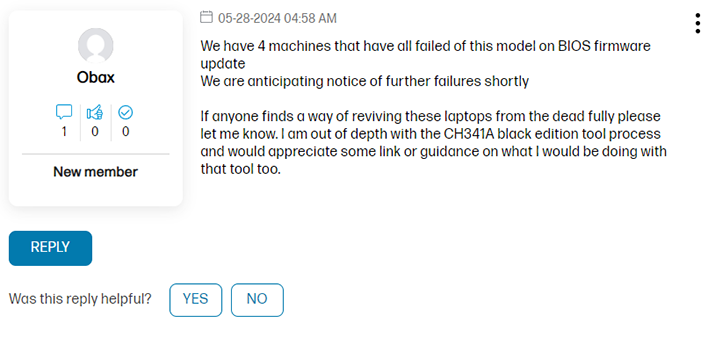HP BIOS Update Blamed For Bricking Laptops And Users Are Livid
BIOS is a catch-all term for the low-level firmware that tells a computer how to boot up. Most of the things we call BIOS today are actually a flavor of Unified Extensible Firmware Interface (UEFI), but whatever you call it, the ProBook is still busted.
Updating a machine's BIOS can be risky, because errors can make the computer unbootable with no way to reflash good software. That appears to be what happened to these particular ProBooks. HP released a new BIOS update in late May, which its HP Support Assistant app automatically installed on the laptops. Some users also got the bad firmware via a Windows Update. Over on the HP support forums, there are multiple pages of complaints about the update. Users claim after rebooting following the new BIOS installation, the machine simply spins its fans and sits on a black screen forever.
Mistakes happen, but HP's handling of this one isn't great. For one, it shouldn't be automatically installing BIOS updates on any PCs, let alone those sold in bulk to businesses. This does seem to be a widespread practice, too. I recently tested an HP laptop which was also configured to install BIOS updates automatically. Given the risk in updating this low-level code, HP should stop making these updates automatic in the Support Assistant software.

If there is no BIOS recover capability available for those systems, all HP can reasonably do in this situation is replace the motherboards or BIOS chips in the affected machines. Some owners have managed to revive the laptops by removing the BIOS chip and manually re-flashing it with the old software. That's a complex operation, though. Most companies will probably just replace the machines unless HP changes course.


